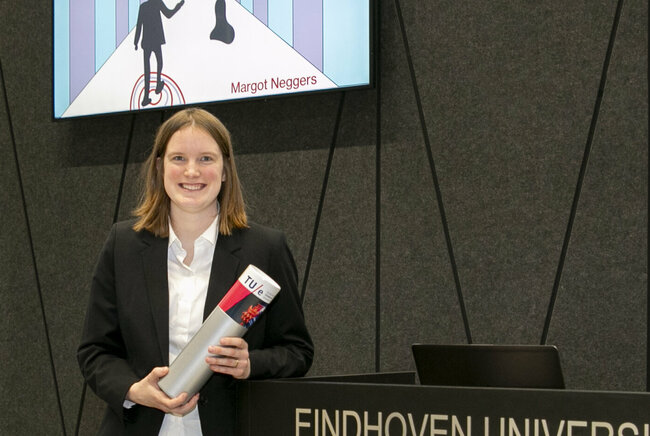Humans and robots need to learn to understand each other
PhD research reveals crucial aspects for comfortable human-robot interaction.

Imagine: you are walking down a busy shopping street and a robot approaches you from behind. Research shows that the robot's distance and predictability are essential for a comfortable interaction. In her PhD research, Margot Neggers investigated people's "personal space," with results that influence the future of human-robot interaction.
Experiments showed that people feel more comfortable when a robot passes at a greater distance and passes in front. Predictability proved crucial. When the robot begins to move out of sight it has a negative effect on predictability. These insights help robots find the right balance between efficiency and human comfort during navigation.
Clear communication
Neggers shows that clear communication from the robot, such as LED signals and adjusting speed or direction contributes to predictability and comfort. People prefer a robot that stops at an intersection and drives away from them, and want clarity about right of way. These findings bring us closer to a future where humans and robots understand each other's actions, an important step forward in the evolution of intelligent robots in our daily lives.
Comfort and predictability
This research not only provides insights into personal space and comfort around robots, but also highlights the need for predictability for successful interactions. This knowledge is essential in developing robots that are not only intelligent, but also integrate seamlessly into our society.
Margot Neggers defended her PhD thesis on December 6th, 2023
Title of the PhD thesis: " Understanding Robots. Comfortable and Predictable Human-Aware Navigation.” Promoters: Wijnand IJsselsteijn, Raymond Cuijpers and Peter Ruijten-Dodoiu